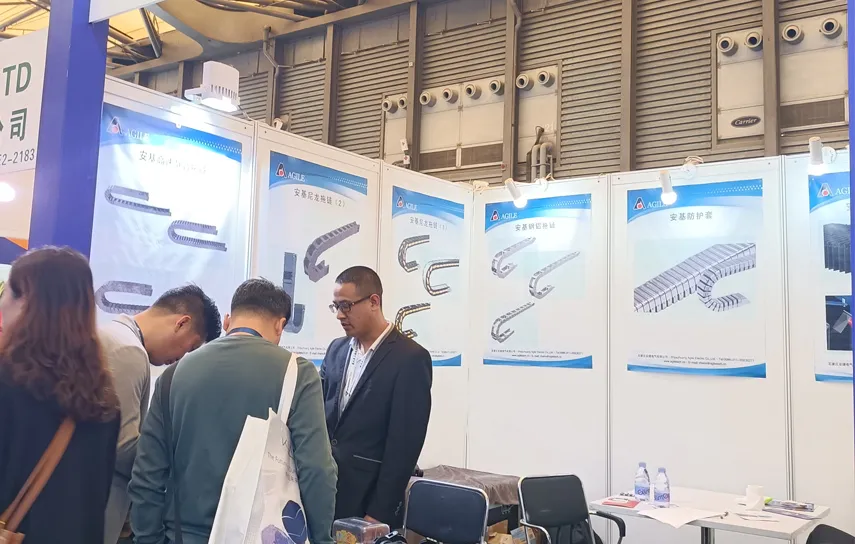electrical cable chain
Understanding Electrical Cable Chains A Comprehensive Overview
In the intricate world of engineering and manufacturing, efficient power distribution is vital for the smooth operation of various machines and equipment. One of the essential components that facilitate this process is the electrical cable chain. Also known as energy chains, cable carriers, or drag chains, these systems are designed to manage and protect flexible cables and hoses in dynamic environments. This article explores the functions, types, applications, and benefits of electrical cable chains, offering insights for engineers and manufacturers alike.
What is an Electrical Cable Chain?
An electrical cable chain is a modular assembly that organizes, guides, and protects cables and hoses throughout a range of motion. These chains are made from durable materials such as plastic, steel, or aluminum and are designed to accommodate different cable configurations, including power, data, and pneumatic lines. The primary purpose of an electrical cable chain is to prevent tangling and wear of cables caused by repetitive movement, thus extending the lifespan of the cables and reducing maintenance costs.
Types of Electrical Cable Chains
Electric cable chains come in various types, each tailored for specific applications
1. Open Chains These feature an open structure that allows easy access to the cables inside. They are perfect for environments where frequent maintenance and cable changes are required.
2. Closed Chains Closed chains protect cables from external factors such as dust, moisture, and mechanical wear. They are ideal for applications in harsh environments.
3. Flexible Chains Designed for applications with significant bending movements, flexible chains allow for easy routing of cables in tight spaces while providing excellent protection.
4. Heavy-Duty Chains Constructed from robust materials, these chains are built to withstand significant loads and are commonly used in industrial and manufacturing applications.
5. Specialty Chains These chains can be customized to meet specific requirements, such as non-conductive or high-temperature environments.
Applications of Electrical Cable Chains
Electrical cable chains are widely used across various industries, including
- Manufacturing Automated manufacturing processes often involve moving machinery that requires effective cable management to avoid damage and ensure smooth operation.
electrical cable chain

- Robotics In robotics, cable chains are essential for ensuring that power and data lines can move freely without causing wear or entanglement.
- CNC Machines Computer Numerical Control (CNC) machines employ cable chains to manage cables that connect to the moving parts of the machine, thus maintaining precision and functionality.
- Automotive The automotive industry relies on cable chains for assembly lines and robotic arms to manage electrical systems efficiently.
- Construction Heavy machinery and cranes employ cable chains to hold power and control lines, thus ensuring safety and functionality.
Benefits of Using Electrical Cable Chains
1. Protection Cable chains guard against wear and abrasion, reducing the chances of cable failure and the associated downtime.
2. Organization They provide a systematic approach to cable management, which enhances the aesthetics and safety of work environments.
3. Flexibility With various designs and configurations, electrical cable chains can be adapted to complex environments and machinery, providing flexibility in cable routing.
4. Reduced Maintenance Costs By extending the life of cables and minimizing the risk of damage, cable chains can significantly decrease maintenance and replacement costs over time.
5. Increased Safety By preventing cable tangling and potential tripping hazards, electrical cable chains contribute to a safer working environment.
6. Efficient Space Utilization These systems help optimize the layout of machinery and workspaces, making them ideal for both industrial and commercial applications.
Conclusion
Electrical cable chains play a crucial role in modern engineering and manufacturing, ensuring that cables and hoses are managed efficiently and effectively. With various types designed for specific applications, they offer numerous advantages, including protection, organization, and cost savings. As industries continue to evolve and technology advances, the importance and utilization of electrical cable chains will only grow, solidifying their place as a fundamental component in the machinery of the future. By understanding their functionality and benefits, manufacturers and engineers can make informed decisions about integrating these systems into their operations, fostering enhanced performance and reliability.








